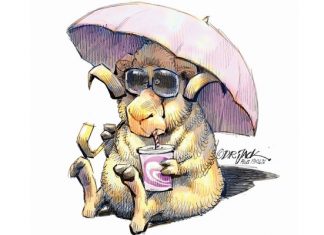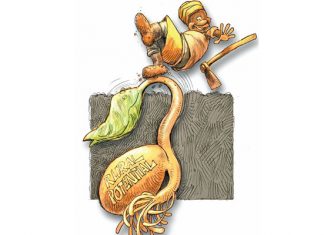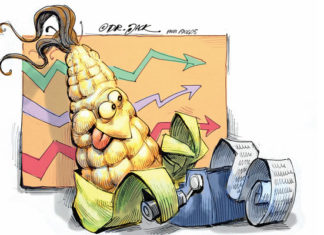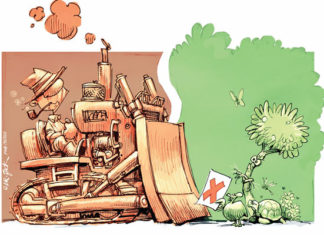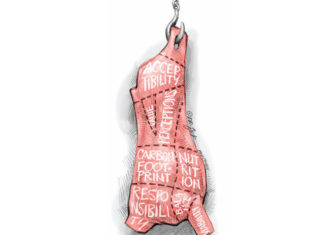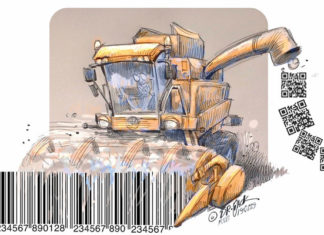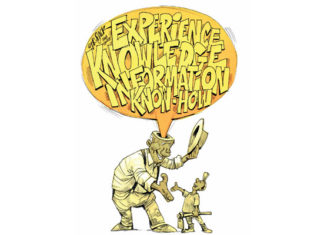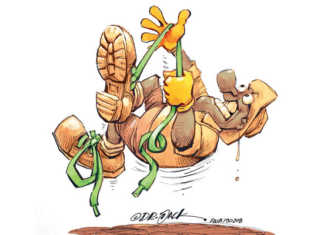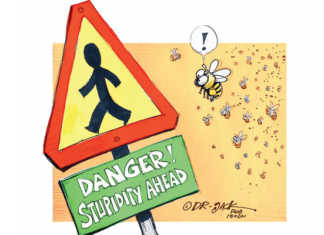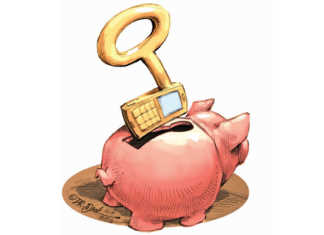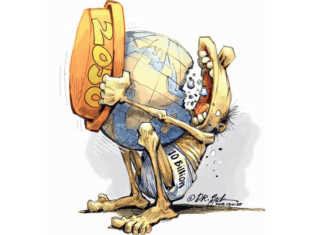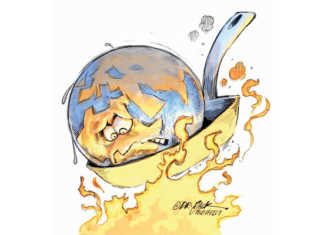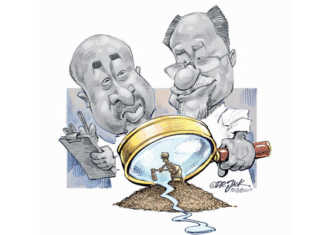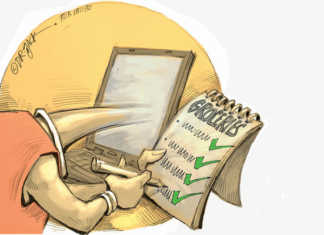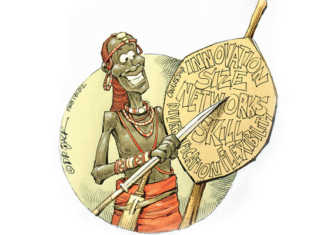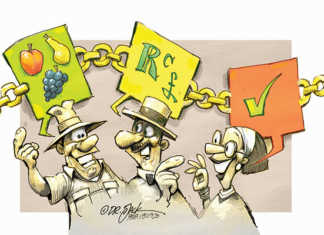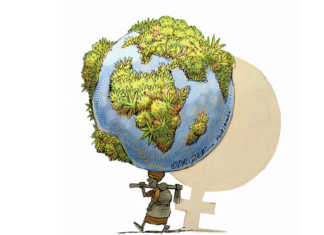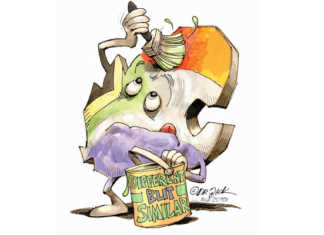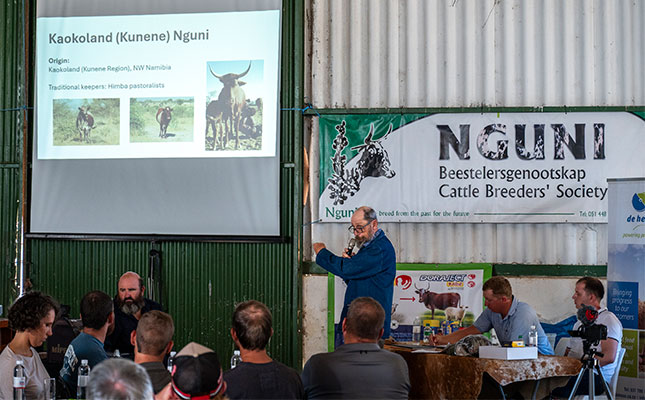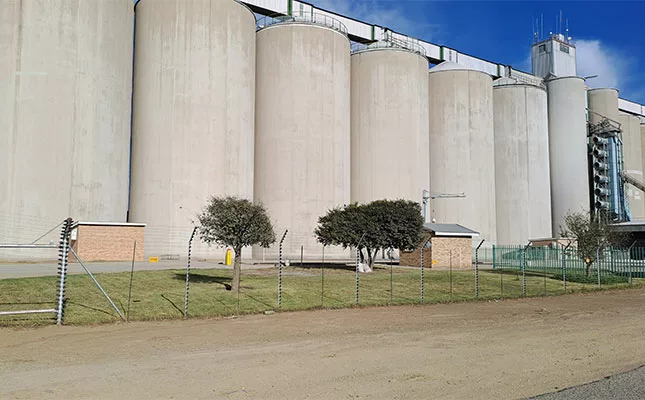Towards climate-smart livestock farming
Natural selection is pivotal in adapting livestock farming to climate change in Africa and beyond, says Prof Charles T Kadzere of the Eastern Cape Department of Rural Development and Agrarian reform’s Dohne Agricultural Development Institute.
How technology is creating better jobs in agriculture
Increased use of technology and automation in agriculture carries with it the risk that certain farm jobs will become redundant. However, according to a new report published by the World Bank, ‘The Changing Nature of Work’, the use of certain digital technologies could make a meaningful contribution to improving employment opportunities in agriculture, especially in developing economies.
Grain hedging: lessons from the farmers who get it right
Since South African agriculture converted from control boards to the free market system in the 1990s, farmers have had to learn how to contend with extreme volatility on commodity markets. According to Silotrat’s Werner Rossouw, hedging is a valuable tool that maize farmers can use to reduce the risk of fluctuating prices. However, in order to benefit from the system, they must learn the rules of the game.
Consider the environment when expanding your farm
Obtaining environmental authorisation with the help of technical consultants prior to expanding farming operations on virgin soil will help farmers avoid prosecution that could lead to hefty fines or even jail time, writes James Brand, a natural resources and environment senior associate at law firm ENSafrica.
‘Green’ livestock production: the facts and the fictions
Global livestock production is increasingly under attack from certain societal groupings who claim that the sector is causing unnecessary environmental harm. Dr Jude Capper, of UK-based Livestock Sustainability Consultancy, explains how livestock farmers can change this perception.
SA agri training needs drastic digital overhaul
Digital technologies and innovations have the potential to revolutionise the world’s food systems. This is why agricultural education and training, particularly in South Africa, needs to be revisited as a matter of urgency, writes Dr Kobus Laubscher, agricultural economist and fellow of the World Academy of Productivity Science.
Commercial farmers’ vital role in rural development
Largely failed land reform initiatives are leading to increased tension and uncertainty in the agriculture sector as a whole. Veteran rural development expert Jimmy Lonsdale believes commercial farmers have a key role to play in turning this situation around.
On the verge of success: SA’s ‘municipal farmers’
A new class of emerging farmer working the land on municipal commonages have similarities to the ‘kulaks’, the highly productive, early 20th century entrepreneurial Russian farmers drawn from the peasantry. Researchers Doreen Atkinson and Mark Ingle explore this phenomenon and its implications for land reform.
Bees the victims of irresponsible pesticide use
Honeybees are the world’s best-known pollinators of natural flora and a vast array of food and fibre crops. Yet they are frequently harmed by human activities, writes CropLife South Africa’s operations and stewardship manager, Dr Gerhard Verdoorn.
Integrated financing for smallholder farmers
Africa’s agricultural potential can only be realised if smallholders gain access to finance. But loans cannot be focused on just one aspect of the value chain at the expense of others. Antois van der Westhuizen, managing director of John Deere Financial, suggests ways to design integrated financing models for smallholders.
A sustainable approach to feeding the world by 2050
There is a large shortfall between the amount of food being produced in the world today and the quantity needed to feed an expected 10 billion people by 2050. A World Resources Institute report suggests it is possible to produce enough food sustainably to cater for the rapid increase in demand, but achieving this will require major changes to the way we grow and consume food.
The difference half a degree of global warming can make
The ‘Global Warming of 1.5˚C’ report of the Intergovernmental Panel on Climate Change highlights several climate change impacts that could be avoided by limiting global warming to 1,5˚C, compared with 2˚C or more. For example, at 1,5˚C warming, the Arctic Ocean is likely to be free of sea ice in summer just once a century on average, whereas at 2°C global warming, the likelihood rises to once a decade.
Why smallholders need to think like entrepreneurs
As irrigation schemes are found mostly in areas with high poverty levels, smallholder irrigation presents major opportunities for reducing rural poverty. However, smallholder irrigation is performing below expectations. A new study explores the reasons for this.
Study shows which policies succeed in developing agriculture
Research by the International Food Policy Research Institute and the International Institute for Sustainable Development analysed progress in agricultural development in 117 countries in Africa, Asia and Latin America to understand which policies have succeeded or failed. It then provided policy guidelines to help countries still at the subsidence farming stage to transform their agriculture sectors.
Self-development: shaping young farmers into future leaders
Dr René Uys, director of Thinking Fusion AFRICA, argues that young South African farmers need to have the emotional fortitude to face up to the often harsh realities of agriculture in this country. In short, they have to be both skilled and brave, which is why self-development is crucial.
Prepare for the supermarket of the future
Disruptive change is coming to supermarkets and this will have a ripple effect throughout the food industry supply chain. According to Bjorn Thumas, director of business development at TOMRA Food, technical innovations online and in-store, combined with shifting consumer demands, will reshape the supermarket of the future.
Kenyan model shows how to support emerging farmers
Professor Cyril Nhlanhla Mbatha of Unisa’s Graduate School of Business Leadership outlines some key production and marketing strategies to help promote the economic sustainability of smallholder farmers, and therefore more successful land reform in South Africa.
Data sharing in the fresh produce industry
According to Ed Treacy, vice-president of supply chain efficiencies for the Produce Marketing Association (PMA), blockchain technology holds great possibilities for improving efficiency and traceability in the fresh produce sector. In particular, it optimises supply chain operations, enhancing quality management, increasing market and business intelligence, reducing costs, and fostering brand protection.
Africa’s swelling population problem
Overpopulation and managing population growth are some of the most difficult subjects to write about.
Homeland consolidation: a forerunner of land reform?
Zimbini Coka, a junior lecturer at the University of the Free State’s Department of Agricultural Economics, visited areas that became part of the Ciskei homeland through consolidation in the 1970s as part of her master’s research. In this article, she shares her views on the lessons learnt from the past process of homeland consolidation and what these mean for South Africa’s land reform process.
- ADVERTISEMENT -
- ADVERTISEMENT -
MUST READS
- ADVERTISEMENT -

